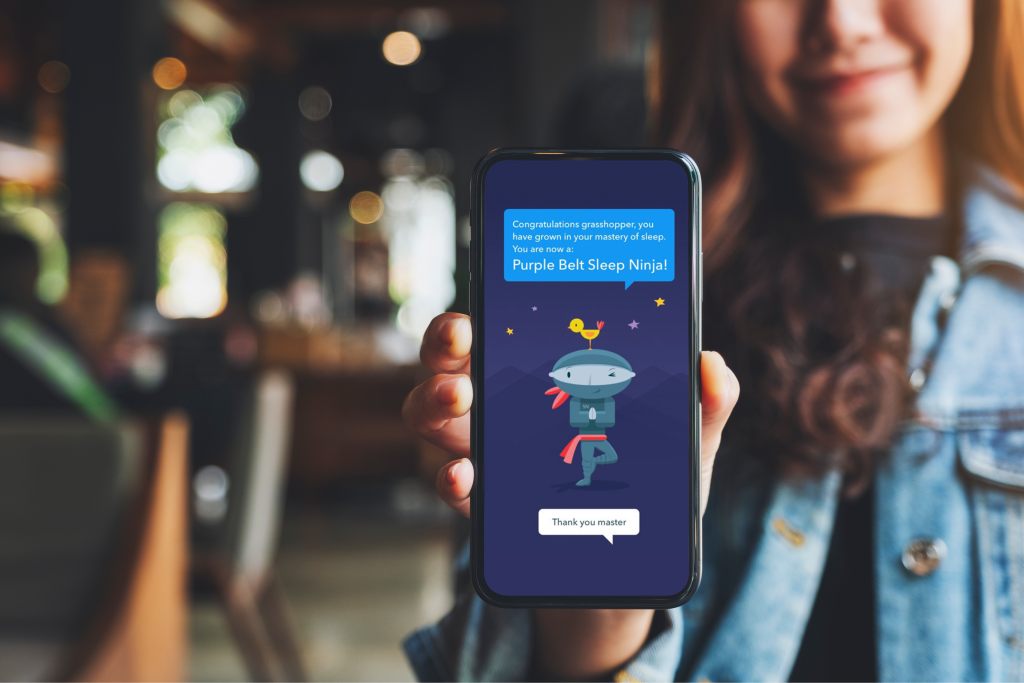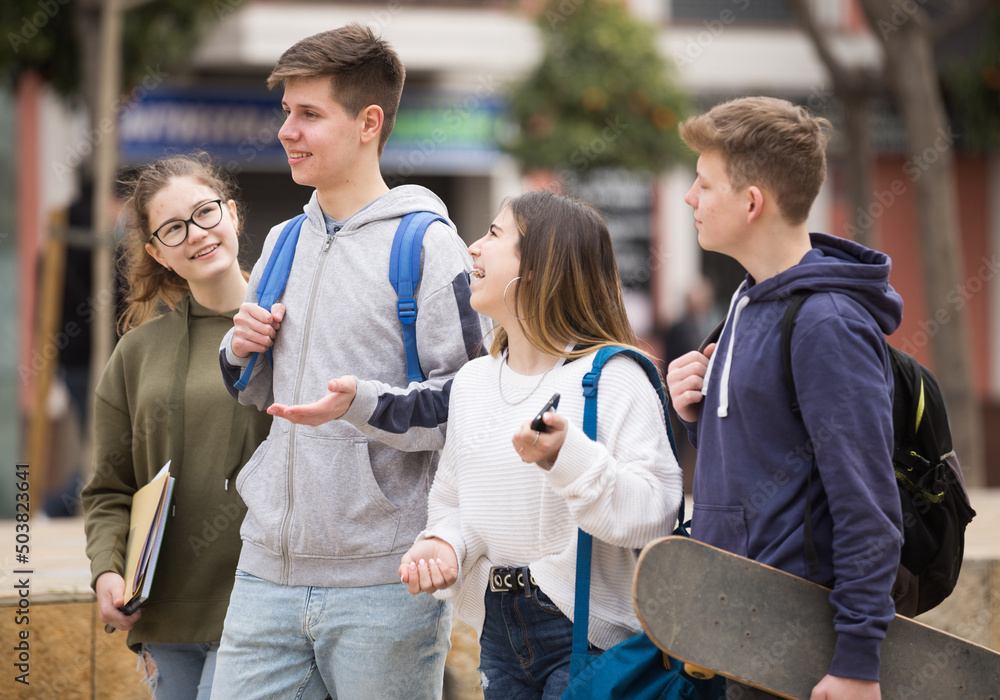Sleep Ninja® app boosts adolescent sleep and mental health
A novel evidence-based smartphone sleep app co-designed by teenagers and their parents, together with researchers at Black Dog Institute, is supporting better sleep and mental health in adolescents through improving their sleep quality.

During adolescence, up to 40% of young people experience significant sleep problems and don’t manage to reach the recommended eight to ten hours of good quality shut-eye. As sleep and mental health can go hand-in-hand, sleep issues in teenagers, when experienced over the long term, effect far more than their energy and concentration. Conditions such as insomnia in young people, substantially increase their risk of developing depression and anxiety in the future. Recognising this connection, Black Dog Institute developed Sleep Ninja®, a digital app designed to help young people who struggle with their sleep, to improve it.
The aim of the smartphone app is to help teenagers establish healthy sleep habits and to provide them with skills and strategies to improve their sleep and maintain those benefits over time. The rationale was that by improving adolescent sleep, this would positively impact their mental health, both now and in the future. Infrastructure required for the development of the app was funded by an infrastructure grant. This was awarded to Black Dog Institute through the Medical Research Support Program, provided by the Office for Health and Medical Research (OHMR). During each phase of the app development, researchers collaborated with young people, their parents, mental health clinicians and sleep experts, to refine the app, based on feedback.
Helping teens improve their sleep
The Sleep Ninja® app is designed to be used during the day and is suitable for young people aged 12-16 years who are experiencing mild to moderate sleep difficulties. These may include difficulty falling asleep or staying asleep, poor sleep quality or not getting enough sleep.
The app delivers Cognitive Behavioural Therapy for Insomnia (CBT-I) in a gamified, six-session sleep program where young people develop scientifically validated skills and strategies to improve their sleep. There are six modules that the user navigates through, each taking five to ten minutes to complete. The sessions include psychoeducation about the science of sleep, how to set up your bedroom for optimal sleep, the importance of a regular sleep/wake schedule and a night-time routine, and how to deal with worries that keep you awake.
The app also offers sleep tips, a sleep tracking function where users can review their progress, and reminders to engage in a pre-bed routine each night about an hour before bed.

Sleep and mental health
To assess Sleep Ninja®, researchers at the Black Dog Institute designed a study to evaluate the impact of the app on insomnia and sleep quality, as well as symptoms of depression and anxiety. The study involved 246 adolescents aged 12-16 who were experiencing mild to moderate levels of insomnia symptoms. One group were randomly assigned to receive the Sleep Ninja® app which they could access for six weeks. The comparison control group received weekly sleep tips via text message.
Assessments undertaken at the start of the study, after the intervention period, and two months following the intervention, assessed insomnia symptoms, sleep quality, and symptoms of depression and anxiety. The research showed that participants allocated to the Sleep Ninja group showed improvements in insomnia, sleep quality, depression and anxiety, relative to the control group, with medium sized effects. The majority of young people who used Sleep Ninja® (91%), also indicated a high level of acceptability and said that they would recommend the app to a friend.
Covid and other impacts on youth mental health
Adolescents are growing up in a complex modern world affected by COVID-19 and climate change impacts such as bushfires, and floods. Other stressors such as the rental and cost of living crisis, the gig economy, loss of jobs due to AI and automation and increased competition for higher education, are also impacting their mental health. These factors can contribute to anxiety and depression which may then have knock-on effects for a young person’s academic, social, and emotional development and outcomes.
Compared with young people who are not experiencing depression, teenagers with clinically significant symptoms of depression are four times more likely to intentionally self-harm and 10 times more likely to have experienced suicidal ideation in the past 12 months. Rates of self-harm and suicidal ideation in young people have also increased in NSW since the pandemic, rising sharply by 47% in young women aged 13-17 years.
Adolescence is a critical time when mental health challenges, such as depression, become more common, with the first onset often occurring around the age of 14. Research also shows that 13% of young Australians aged 12-17 now experience major depressive episodes and these figures are rising. Insomnia is a risk factor for the development of depression. Teenagers who are affected by depression miss around 20 days or more of school each year and also report poorer quality of peer relationships. Depression can also result in a range of unhealthy lifestyle behaviours and impacts, including a poor diet, sedentary lifestyle and disrupted sleep.
Meanwhile, there are numerous barriers to addressing adolescent depression, including stigma and accessibility to ongoing psychological support. Without immediately identifiable benefits, mental health support programs may not always engage young people. By treating self-identified non-stigmatising comorbidities, such as sleep, a young person’s motivation to engage in prevention and early intervention programs could be improved.
While there is compelling evidence for the effectiveness of insomnia interventions to reduce depression in adolescents, there are currently no digital programs available that specifically target improved sleep and insomnia in teens. Sleep Ninja® fills this gap by offering a gamified, engaging program that addresses insomnia in young people via a smartphone app that is accessible, user-friendly, and non-stigmatising.
For more information on the Sleep Ninja® go to: https://www.blackdoginstitute.org.au/resources-support/digital-tools-apps/sleep-ninja/
Updated 12 months ago